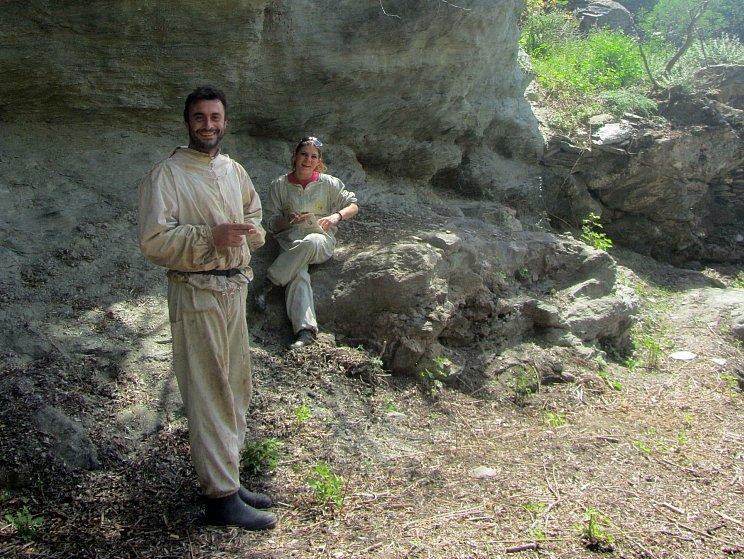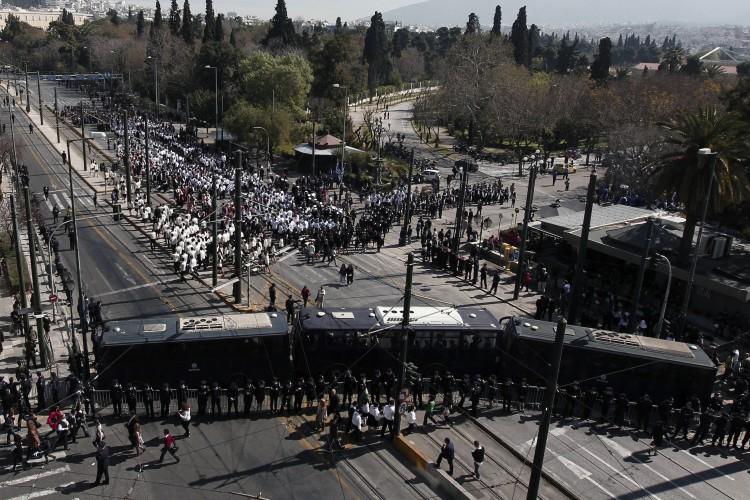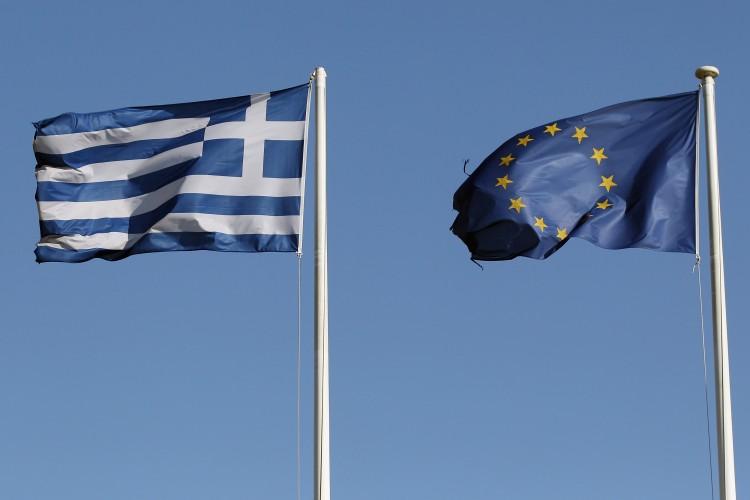ATHENS—For the first time in over 30 years, two-party rule in Greece between PASOK and New Democracy may come to an end when Greeks go to the polls Sunday for the second time in six weeks.
The vote on May 6 was inclusive in terms of forming a government, but the surprise of that day was the strong second place showing of the Coalition of the Radical Left, or Syriza, which could be inline to form a government after Sunday.
While New Democracy and PASOK came in first and third respectively, they were severely punished in terms of popular vote, winning only 33 percent between them.
The defining issue is the euro crisis and the unpopular bailouts favored by the two traditional parties and soundly opposed by Syriza and its 38-year-old leader Alexis Tsipras.
The terms of the first bailout say that if Greece cannot pay back what it owes, its creditors may take state funds, state enterprises, and natural resources. There is also a stipulation in which Greece cannot go to court to oppose the terms of the bailout.
The second bailout involves budget cuts as well as delivering payments on first round of loans. These cuts affect salaries and pensions, decreasing many monthly salaries by upward of 200 euros (US$253).
While the world is nervously watching the election, fearing that a Syriza win could, in a worst case scenario, unravel the eurozone, many Greek voters are tired of making sacrifices.
Anastasios Koutsodimitropoulos, a 71-year-old retired airplane engineer from Athens, said: “I previously voted for and will again vote for Syriza. We don’t have anything more to loose, but the bankers have. Those two parties [PASOK, New Democracy] are drinking our blood with the taxes and extra bills that they make us pay. My pension is 400 euros less now. How am I going to pay what they are asking with money that I don’t have?”
The unemployment rate among youth in Greece is about 50 percent, and the overall unemployment rate is about 22 percent in a country of just over 11 million people.
Not only did Syriza do well on May 6, but many other small protest parties did too, which delivered a fractured Parliament of seven parties. Syriza may pick up some of those protest votes this time, like that of Manos Stavropoulos, a 26-year-old university graduate from North Greece.
“In the first election I voted for a smaller party, but for the next election I am going to vote for Syriza, even if they make mistakes, because I don’t want the right-wing parties again. So that everyone may have bread to eat, I am going to vote for Syriza,” said Stavropoulos.
Even though Greeks have voted for PASOK and New Democracy for three decades—the parties have never won less than 77 percent of vote combined—it now seems many voters no longer trust them.
Despoina Vlaserou, a 38-year-old photographer from Athens, says, “I previously voted for and will again vote for Syriza because I want to strike down those two big parties.”
Still the race is far from over.
“A hard battle will be fought between Syriza and New Democracy. It’s still going. The chances are 50:50,'' says political scientist Elias Georgantas.
Tsipras is working off a populist platform. He says first, he will ensure that the retired population gets their pensions and that workers get their salaries without cuts. After that is settled, he plans to negotiate with the European Union regarding repayments, focusing on a development strategy for the country’s economy.
The message being peddled by the traditional parties is that a vote for anti-austerity party Syriza, could spell Greece’s exit from the eurozone and or the EU, with a variety of catastrophic prophecies.
Many voters have bought into this. Kostas Xasaris, a 31-year-old taxi driver from Athens, said, “I previously voted for and will again vote for New Democracy because I don’t want Greece [to] withdraw from the EU.”
Tsipras says he does not want to withdraw from the common currency. But has also said that whatever happens, the citizens of Greece will use their votes to take the country’s fate into their own hands.
New Democracy says that PASOK accepted the bad debt-payment arrangement from the EU. New Democracy party leader Antonis Samaras says he plans to focus on developing Greece’s economy, which would reduce the unemployment rate by the end of next year.
PASOK admits that it made a mistake by signing the bailout contracts without thinking it through more thoroughly.
During the last election in May, about 20 to 23 percent of the population did not turn out to vote. According to Georgantas, “The first factor is that voters are frustrated with the existing political system and the two-party rule. The second factor, totally relevant to the current economic situation, is that many people did not choose to vote because of financial constraints.'’
There are reasons why some voters have moved to Tsipras’s camp. “The vote for Syriza is not just a protest vote. Voters are likely to see in Syriza a best and most credible political entity that will transform society by giving the Greek response to social demands.''
If Tsipras wins the election, Georgantas says, “What he will accomplish depends largely upon the alliances he will have and how he will manage the conflicts that will inevitably arise with this unprecedented electoral success.'’
Whoever assumes leadership, be it Syriza or New Democracy, debt payments will still have to be made Greece and its people. The question is, under which party will that it be least painful.
The Epoch Times publishes in 35 countries and in 19 languages. Subscribe to our e-newsletter.






